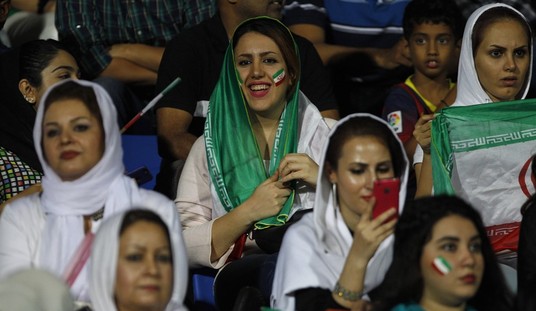Even as some Westerners are beginning to wake up to the progress of soft jihad and “sharia creep” (and here), it is worth noting that radical Islam continues to make conspicuous strides in coopting Western institutions and legal instruments to undermine the reality of Western liberty. Consider, to take just one example, the summit meeting of the Organization of the Islamic Conference which ended Friday in Dakar, Senegal. An Associated Press report has the details:
The Muslim world has created a battle plan to defend its religion from political cartoonists and bigots.
Concerned about what they see as a rise in the defamation of Islam, leaders of the world’s Muslim nations are considering taking legal action against those that slight their religion or its sacred symbols. It was a key issue during a two-day summit that ended Friday in this western Africa capital.
The Muslim leaders are attempting to demand redress from nations like Denmark, which allowed the publication of cartoons portraying the Prophet Muhammad in 2006 and again last month, to the fury of the Muslim world.
Let’s see, “redress” for publishing cartoons about a 7th-century religious figure? For “slighting” a religion? While you ponder that, here’s some more of the AP report:
Though the legal measures being considered have not been spelled out, the idea pits many Muslims against principles of freedom of speech enshrined in the constitutions of numerous Western governments.
“I don’t think freedom of expression should mean freedom from blasphemy,” said Senegal’s President Abdoulaye Wade, the chairman of the 57-member Organization of the Islamic Conference. “There can be no freedom without limits.”
My nomination for the Understatement of the Week Award: “the idea pits many Muslims against principles of freedom of speech.” You might say that. But the more sinister thing comes with President Wade’s comment: he is certainly correct that “there can be no freedom without limits.” James Madison or John Locke might have said something similar–but with very different intent. The question (well, one question) is, where does one draw the line? And who is enfranchised to do the drawing? If a Danish paper publishes a caricature of Muhammad, should Denmark, or the paper, or the cartoonist responsible be liable to an offended Muslim in Senegal?
What makes this little pow-wow among “leaders of the world’s Muslim nations” significant is not what might follow from it in the way of positive legislation–though you never know–but rather what it betokens as a sign of the times. It is part of a large if still more or less amorphous mobilization of anti-Western sentiment on the part of people who detest Western mores but crave its wealth and Lebensraum. It is not at all clear that we have formulated any compelling response. Mostly what we find are anodyne bleatings like those of Sada Cumber, U.S. envoy to the Organization of the Islamic Conference, who kept trying to burnish “America’s image” in Muslim countries and find what the AP called “common ground” with Muslim nations by championing “universal values the U.S. holds dear like religious tolerance and freedom of speech.” Gee whiz. “America has a deep respect for the religion of Islam,” Cumber said. “The freedom of faith that we exercise, that we enjoy in America, that is also a very important aspect of the American core values. Anyone who wants to practice any faith is never stopped or discouraged.”
Dear, dear, dear, Mr. Cumber. Don’t you see that your interlocutors in Senegal do not regard religious freedom or freedom of speech as “universal values”? They regard them as part of the decadent legacy of the West. Don’t think so? Ponder the fatwa, dated March 14, issued by “Saudi Arabia’s most revered cleric” which maintains that two writers who questioned some tenets of Sunni Islam “should be tried” and, if they fail to repent, “should be killed as an apostate from the religion of Islam.”








Join the conversation as a VIP Member